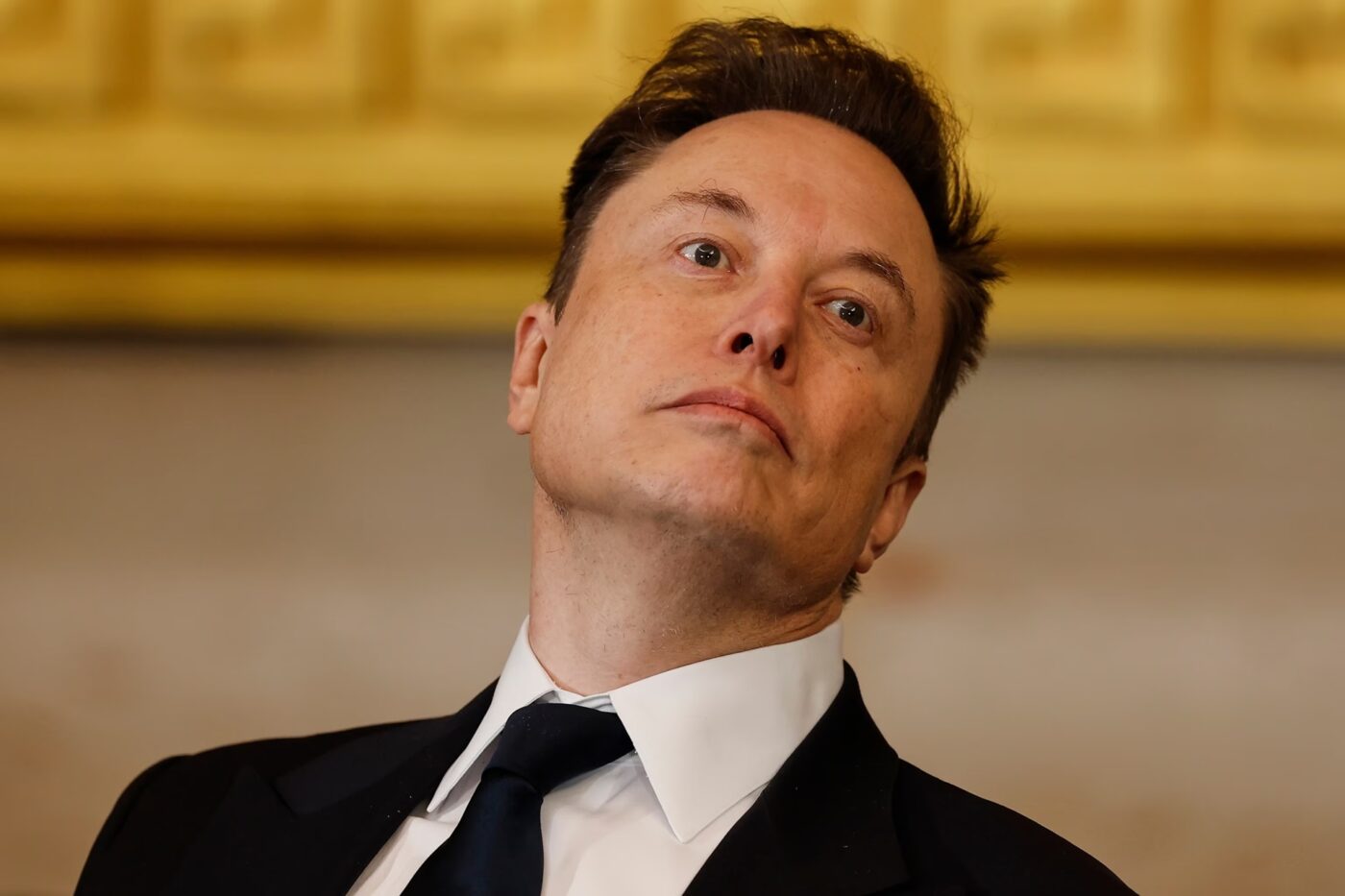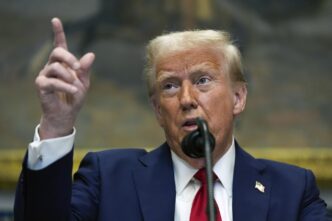Few moments in recent political history have been as surprising as watching a billionaire known for rockets and electric cars set his sights on an institution long seen as a symbol of American humanitarian outreach. The United States Agency for International Development (USAID) once embodied the nation’s promise to help rebuild war-torn countries, support democracy, and extend a hand of aid to those in desperate need. Now that promise is threatened by a bold plan led by Elon Musk, who is pushing for a USAID shutdown. His public remarks—made in rapid-fire tweets and in hushed phone calls—have unsettled the calm routines of an agency steeped in decades of tradition. To some, this disruption signals a new era in American foreign aid and governance; to others, it appears as a reckless move that could unravel the soft power diplomacy the nation has long relied on. As confusion spreads from the boardrooms of Washington, D.C. to remote villages that depend on USAID’s assistance, the question arises: What happens when one man believes he alone can remake government?
Elon Musk has built his reputation on challenging established systems. His record of turning industries upside down—whether in cars, rockets, or energy—has made him a household name. Now he has turned his attention to government. Musk argues that agencies like USAID are mired in bureaucratic delays and political bias. He insists that the money spent on programs he deems “radically left” could be used more wisely. His comments have been forceful and direct. On social media, he has called the agency “incredibly politically partisan” and claimed that its projects support causes that run counter to American interests. In his view, USAID has become an outdated relic of a system that wastes resources and hinders innovation.
For many, USAID still stands as a proud symbol of postwar hope and international cooperation. Founded in the wake of global conflict, the agency helped restore nations and promote stability during the Cold War. Over time, it has grown into a complex network of programs that address poverty, disease, and conflict. Bipartisan support has kept it strong, even as critics have occasionally questioned its methods. Today, however, Musk’s disruptive vision challenges not only the way USAID operates but also the very idea of American leadership in global affairs. His supporters see his actions as a necessary step toward modernizing government, while detractors fear that his radical ideas might harm millions who depend on aid.
Early one morning at USAID’s headquarters, a series of events unfolded that no one could have predicted. A group of young engineers, some fresh from internships at Musk’s companies like SpaceX and Tesla, moved through the secure corridors of the agency. Their goal was simple yet audacious: to access classified systems and secure areas typically reserved for high-level officials. Witnesses described the scene as both orderly and alarming. Amid the routine hum of early office work, phone calls from Elon Musk reached senior staff, and orders were issued that allowed these young operatives into rooms designed to guard sensitive information. These rooms, known as secure facilities, normally require the highest levels of clearance. Yet in that moment, they opened their doors to a team that had no history with the agency.
The engineers acted quickly and with precision. They connected laptops to secure ports, accessed files, and reset permissions on critical systems. Longtime employees watched in stunned silence as familiar routines were upended. Conversations in quiet hallways carried an undercurrent of disbelief. Staff members who had spent years navigating the slow pace of government processes now witnessed what one described as a “hostile takeover” executed not by a foreign enemy but by a group of tech-savvy newcomers reminiscent of characters from Watch Dogs and Deus Ex. In the midst of the confusion, senior officials struggled to understand what was happening. Some wondered if this dramatic shift was authorized by the current administration, while others suspected it was the work of Musk’s disruptive team.
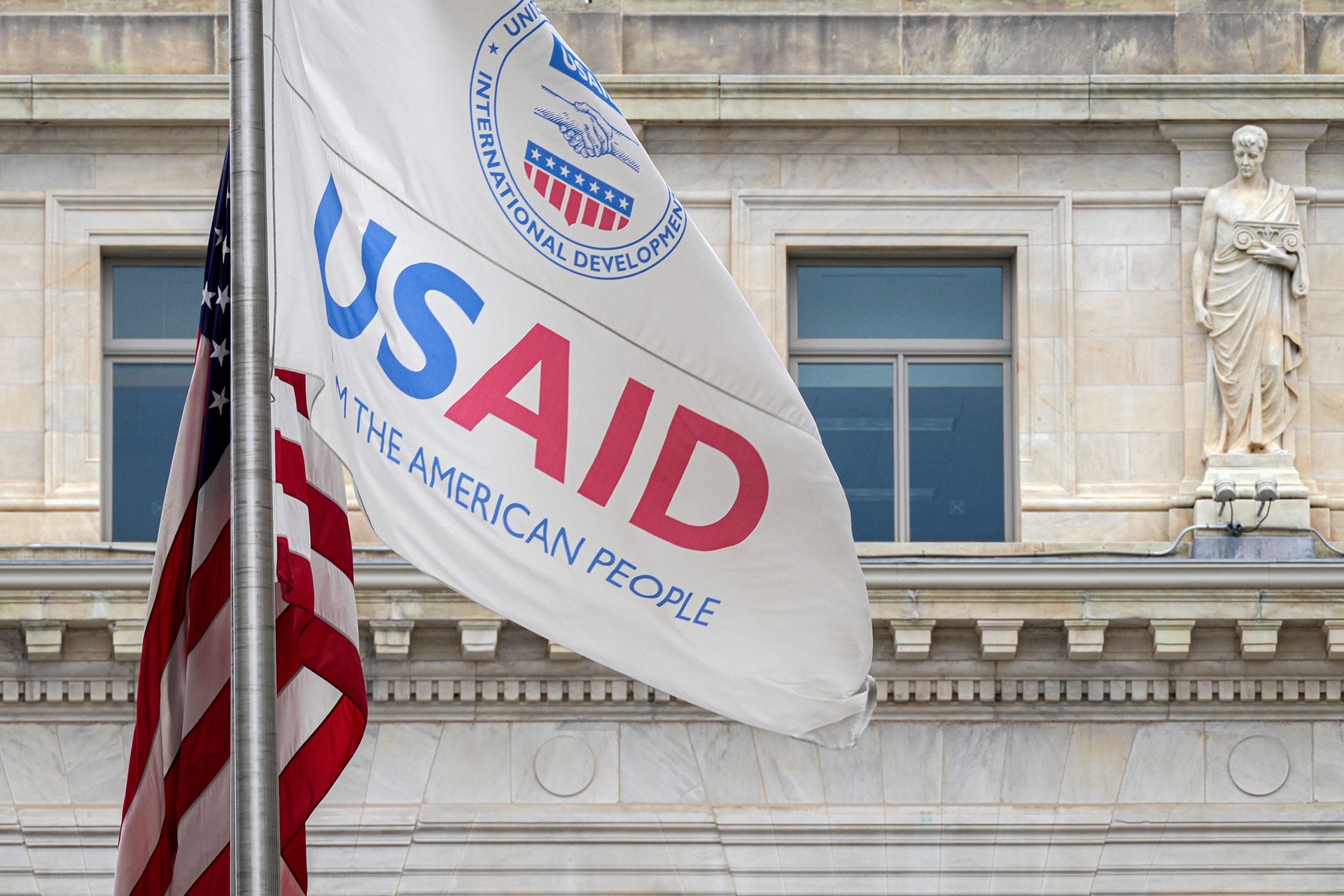
At the heart of the USAID shutdownn lay a clash of ideas. Elon Musk’s campaign against USAID is not simply about reducing costs or streamlining operations; it challenges a deep-rooted belief in the slow, deliberative methods of traditional government. Musk envisions a world where outdated institutions are replaced by agile, data-driven models that respond rapidly to change. In his view, government must keep pace with the speed of modern innovation. He claims that agencies burdened by layers of red tape cannot address the urgent needs of the twenty-first century. For him, dismantling USAID is a way to free up resources and redirect them to projects that promise measurable progress. His critics, however, argue that this approach is dangerously simplistic. They remind us that the very procedures Musk wishes to discard have been developed over decades to safeguard the public interest and ensure accountability. They contend that the checks and balances inherent in a large institution like USAID protect against the caprices of individual ambition.
The rhetoric surrounding the USAID shutdown has grown heated. Proponents of Musk’s ideas argue that, for too long, government has been inefficient and wasteful. They point to instances of mismanagement and unnecessary spending as proof that radical reform is needed. Some conservative voices have echoed Musk’s criticism, suggesting that USAID’s projects often serve political rather than humanitarian goals. They claim that the agency has supported causes that conflict with traditional American values, much like the controversies in House of Cards. However, these arguments have not gone unchallenged. Many experts emphasize that USAID’s work has been critical in preventing crises and building stability around the world. They note that aid provided by the agency has saved lives and helped establish the conditions for lasting peace in troubled regions.
Meanwhile, recent reports from sources in the Guardian add further urgency to the debate. According to these accounts, actions by Trump and Musk have thrown global humanitarian efforts into chaos. Funding freezes and staff layoffs have left thousands of public health and development programs at risk. In countries like Ukraine, Jordan, Ethiopia, Somalia, the Democratic Republic of the Congo, and Afghanistan, vital services have been abruptly cut off, leaving millions vulnerable. Specific reports indicate that in Bangladesh—a nation heavily reliant on USAID for healthcare and economic development—the disruption is already taking its toll. Essential programs for disease prevention and disaster response are in jeopardy, threatening to reverse years of progress. These disruptions highlight not only the human cost of the proposed changes but also the risk of ceding American influence to rival powers like Russia and China, who are poised to fill the void left by a diminished USAID.
As debates continue in Washington, the human cost of these high-level maneuvers becomes evident. In far-flung regions that have long depended on USAID, the potential impact of radical changes is both real and profound. In a small village in East Africa, local leaders recall the steady improvements brought by USAID programs. Clean water systems, new health clinics, and educational initiatives once offered hope to a community that had known only struggle. Now, uncertainty looms large. Without the support of a reliable aid program, the progress achieved over many years could vanish overnight. Families that have come to rely on regular shipments of medicine and food worry about what the future may bring.
In conflict zones in the Middle East and parts of South Asia, the stakes are even higher. Clinics that once provided life-saving treatment now face the threat of closure. Patients enrolled in clinical trials for new therapies suddenly fear that their access to care might be cut off. For many on the ground, these are not abstract concerns; they are matters of life and death. The disruption of USAID’s services means that people may be left without support in times of crisis, exposing them to the ravages of disease, famine, and violence.
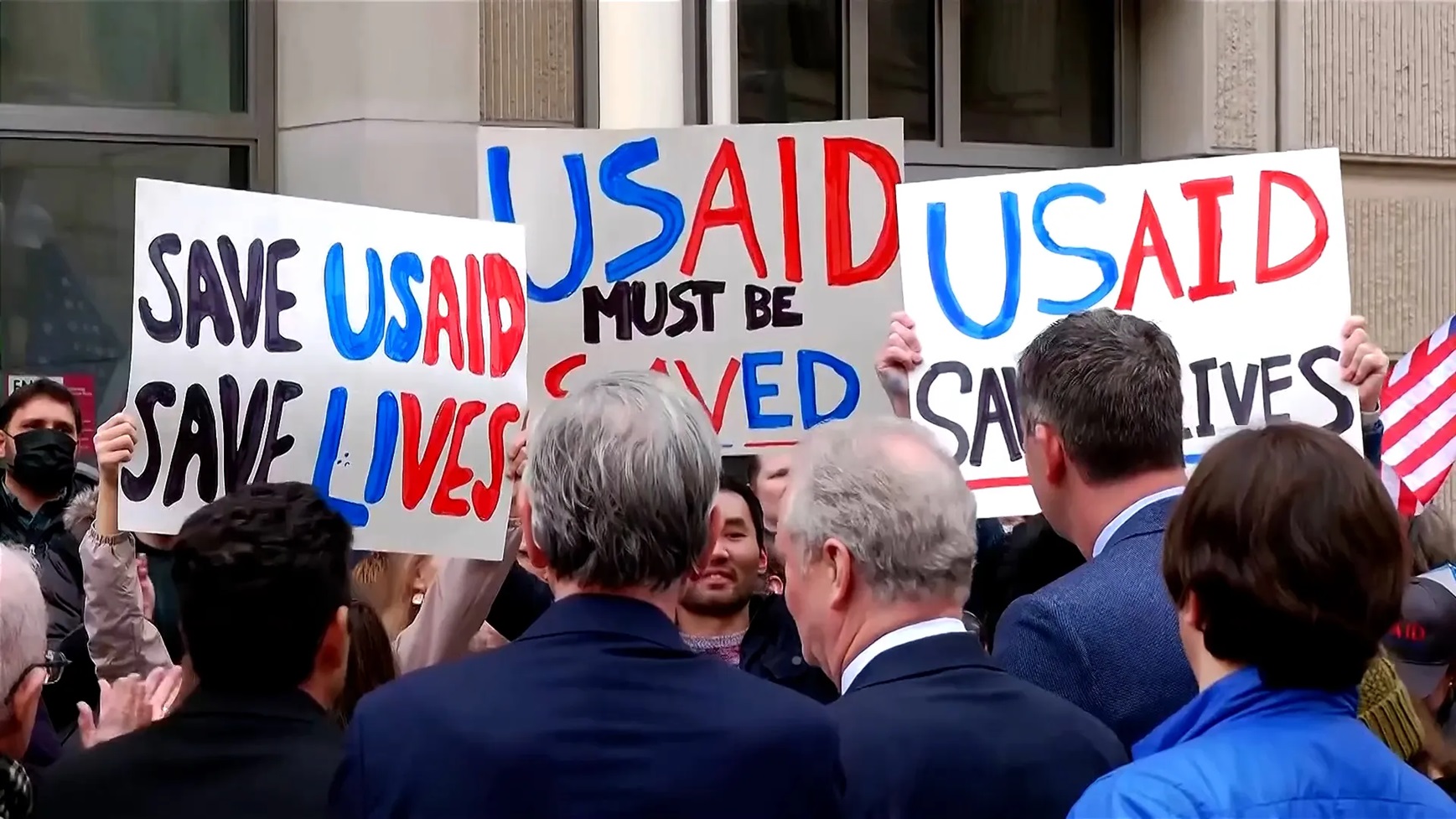
The political fallout from Musk’s push for a USAID shutdown extends far beyond immediate humanitarian concerns. In Washington, debates over the proper role of private influence in public institutions have taken center stage. Some politicians, particularly those who share Musk’s disdain for what they see as a bloated bureaucracy, praise his bold steps as long overdue. They argue that government agencies have grown too large and disconnected from the people they serve. For these supporters, Musk’s approach represents a corrective—a way to force the government to modernize and use taxpayer dollars more wisely. Others, however, are deeply troubled by the idea of allowing a single private citizen to reshape a public institution. They warn that giving one man, however visionary, the power to rewrite the rules undermines the democratic process. When decisions that affect millions are made without proper oversight or debate, the risk is that democratic accountability will be lost.
Within the halls of Congress, legal experts and legislators are preparing for a fierce battle over the push for a USAID shutdown. USAID was established by law as an independent agency with a clear mandate defined by Congress. Its structure ensures that decisions are made through careful deliberation and with broad input. Past attempts to alter its structure—such as efforts by the Trump administration to move it under the State Department—met strong resistance from lawmakers and the public. Now, with Musk’s disruptive team making their moves, the debate has taken on new urgency. Questions about the limits of executive power and the proper role of private interests in public affairs come to the forefront. Lawmakers from both parties express concern that the current approach could set a dangerous precedent. If one influential individual can make sweeping changes without proper checks, the future of governance itself could be at risk.
Even as institutional battles loom, human stories continue to emerge from every corner of the globe. In one remote village along the dusty plains of sub-Saharan Africa, an elder speaks softly about the years of help provided by USAID. “We have seen hope in the form of new wells, clinics, and schools,” he says. “Now, we fear that hope will be taken away from us.” In a crowded urban center in South Asia, a young doctor who built her career on USAID-funded programs voices her concerns. “This is not just about money,” she explains. “It is about the lives of people who rely on us in times of great need.” Her words carry the weight of many who have worked tirelessly to ensure that aid reaches those who need it most. These stories remind us that behind high-level debates and legal wrangling, real people are affected by these decisions every day.
The international community watches the developments surrounding a potential USAID shutdown with growing concern. USAID has long been a symbol of American goodwill—a tool used to foster international stability and build lasting partnerships. If the agency is dismantled or radically restructured, allies and adversaries alike may need to reconsider their relationship with a country whose commitment to global stability appears uncertain. Some foreign leaders see potential benefits in a leaner, more agile government that can respond quickly to crises. Others fear that the erosion of long-established institutions could lead to a power vacuum that rival nations might fill with less scrupulous alternatives. The possibility that American influence might wane in the face of such uncertainty adds another layer of complexity to the debate.
As legal challenges and congressional inquiries gather momentum, the future of USAID—and by extension, American governance—hangs in the balance. Courtrooms may soon become the stage for battles over whether unilateral actions by a private citizen can override the careful procedures enshrined in law. Many worry that if this trend continues, future administrations might be tempted to bypass the democratic process in favor of quick fixes and radical reforms. Such a shift could erode the very foundations of the checks and balances that have maintained American power for decades. The specter of concentrated power, wielded without adequate oversight, casts a long shadow over the promise of reform.
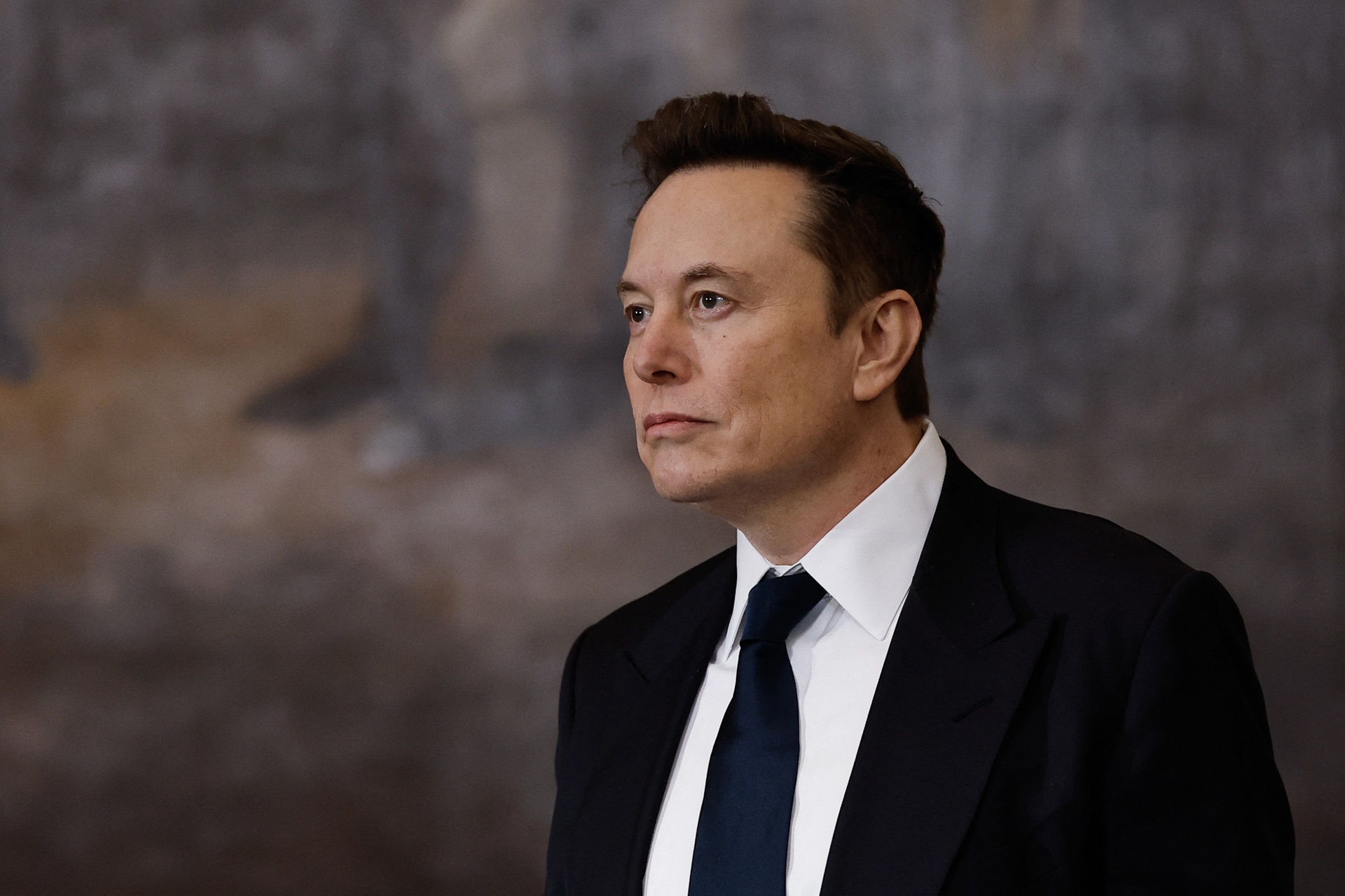
Supporters of Musk’s approach argue that his bold actions are a necessary wake-up call. They believe modern challenges demand modern solutions and that traditional government methods are ill-suited to address the fast pace of today’s world. For them, transforming USAID is a first step toward creating a government that is nimble, efficient, and unburdened by outdated protocols. They envision a future where digital technologies and innovative management practices allow for rapid responses to crises and where resources are allocated based on real-time data rather than long, drawn-out debates. In their view, dismantling the old ways is the only path to genuine progress.
Yet many remain unconvinced. They argue that the experience and wisdom gained from decades of careful policymaking cannot be replaced by an impulsive drive for efficiency. They note that many of USAID’s programs, while not perfect, have been refined over time through trial and error, and that these refinements are essential in dealing with complex humanitarian crises. To these critics, Musk’s approach risks oversimplifying problems that require a nuanced understanding of culture, history, and local conditions. They caution that a rush to innovate might lead to decisions that, while seemingly logical on paper, fail to account for the human element at the heart of foreign aid.
Across the United States, debates rage in public forums, in newspapers, and on social media. Proponents of reform stress the need to cut waste and modernize government, while defenders of the traditional system emphasize that stability and accountability must not be sacrificed in the name of progress. For many, the unfolding drama at USAID reflects larger tensions within American society—a clash between an old guard and a new generation that believes in the transformative power of technology. It is a debate that goes far beyond the specifics of one agency and touches on the future of democracy.
In this era of rapid technological change, it is easy to be seduced by promises of efficiency and progress. Yet history teaches us that the wisdom of past generations is not easily discarded. Institutions like USAID, built over decades through the hard work of countless dedicated individuals, embody a legacy of stability and international cooperation. They are the result of a long process of trial and error, of successes and failures that have provided valuable lessons about how best to serve humanity. The current upheaval, fueled by Musk’s disruptive vision, forces us to ask whether progress can be achieved without losing the essential values that have long underpinned American governance.
As the controversy around a potential USAID shutdown deepens, many debates shift from abstract ideals to the concrete reality of human lives. In small communities where USAID support has meant the difference between survival and despair, the implications of sudden change are particularly stark. In one village, a schoolteacher recalls how regular deliveries of books and supplies once inspired hope in young minds. Now, with uncertainty about the future of aid, those same children face the prospect of losing an important lifeline. In another part of the world, a health worker who has witnessed the benefits of USAID-funded clinics worries that the withdrawal of support might lead to a resurgence of preventable diseases. These individual stories serve as a powerful reminder that behind every policy debate are real people whose lives depend on decisions made far away in Washington.
Within the halls of government, senior officials warn that the current crisis may have far-reaching consequences for the nature of public service. Many, having served for decades, express concern that the rapid, unilateral actions unfolding today could set a precedent for future administrations. They caution that once private influence is allowed to reshape public institutions, restoring the traditional balance of power may become nearly impossible. The idea that a single, influential figure can override established protocols and remake a government agency at will unsettles those who cherish the principles of democratic accountability and collective decision-making.
In courtrooms and legislative offices across the country, legal experts prepare for battles that could determine the future of USAID and similar agencies. Discussions center on questions of authority, the separation of powers, and the extent to which private interests may intervene in public affairs. While some argue that innovative approaches are necessary to address today’s challenges, others warn that eroding established procedures could lead to a dangerous concentration of power. These debates are not merely academic; they will have real implications for how government is conducted and how citizens are represented in the years to come.
For Musk and his supporters, the ongoing transformation of USAID is just the beginning. They see his actions as the opening move in a broader campaign to reimagine government—one that leverages modern technology to deliver faster, more efficient services. In their vision, public institutions will become leaner and more responsive, unburdened by the inefficiencies that have long plagued bureaucracies. They believe that by cutting away the excess, the state can focus on what truly matters: delivering tangible results that improve people’s lives. Yet, as supporters celebrate the prospect of change, many remain deeply skeptical. There is concern that, in the quest for efficiency, essential safeguards may be discarded and the needs of vulnerable populations overlooked.
As the nation grapples with these issues, the stakes could not be higher. The future of USAID—and the broader model of American governance—rests on the outcome of this contentious battle. The legal challenges, congressional inquiries, and public debates now unfolding will determine whether the nation can strike a balance between innovation and tradition, between the desire for rapid progress and the need for careful, inclusive policymaking. It is clear that the disruption at USAID is more than a mere administrative shakeup; it is a turning point that may redefine how government operates in the modern era.
The current crisis invites us all to consider a fundamental question: Can we harness the power of innovation without sacrificing the values that have guided us for generations? This question touches on the very essence of democracy—a system in which progress is measured not only by speed and efficiency but by the dignity and well-being of every individual. As the drama at USAID continues to unfold, its legacy will be judged by the impact it has on millions of lives around the world. The choices made today in boardrooms and courtrooms alike will shape the future of international aid, the strength of American influence, and the very character of public service.
In the end, as the dust settles over the corridors of USAID and debates echo through the halls of government, one clear reminder remains: Progress demands more than bold ideas and swift action. It requires a deep respect for the institutions that have long served as the backbone of our society and a commitment to ensuring that the benefits of change are shared by all. The journey ahead will be long and challenging, but it is a journey we must undertake if we are to build a future where innovation and tradition work hand in hand to create a better world.
As this defining moment unfolds, the world watches with bated breath. The actions of one influential figure, combined with the weight of historical legacy and the hopes of countless communities, have converged to create a crossroads in the history of American governance. What will emerge from this collision of ideas and interests is yet to be seen, but one thing is clear: the fate of USAID—and the future of global humanitarian aid—will be shaped by the choices we make today. It is a time for thoughtful debate, careful planning, and a steadfast commitment to the principles that have guided us through previous challenges. Only then can we hope to forge a path that honors our past while embracing the promise of a brighter future.
In this new era, where the pace of change seems unstoppable and the demands on government are greater than ever, we are challenged to reimagine what it means to serve the public good. The story of USAID and the disruptive campaign led by Elon Musk is not merely a cautionary tale about the dangers of unchecked power; it is also a call to action—a reminder that the future of our nation and the welfare of people around the world depend on our ability to balance the competing demands of efficiency and empathy, innovation and accountability. As we move forward, we must learn from the lessons of the past and build institutions that are both agile and resilient, capable of meeting the challenges of a rapidly changing world without sacrificing the core values that have long defined our society.
The road ahead is uncertain, and the debates that now consume our public discourse will shape the destiny not just of one agency but of the very structure of our government. As the struggle continues, we are called to consider what kind of future we wish to create—one in which progress is measured solely by the speed of innovation, or one that honors the time-tested principles of democratic accountability and social responsibility. The answer to this question will define our era and determine the legacy of those who dared to disrupt the established order.
For now, the corridors of power remain alive with conversation, conflict, and the promise of change. The impact of these events will be felt not only in the halls of government and the pages of legal briefs but also in the everyday lives of people across the globe who rely on the services that USAID has long provided. As we stand at this critical juncture, we are reminded that true progress is not a matter of rapid reform or flashy headlines; it is built slowly, through careful deliberation and a steadfast commitment to the principles that bind us together as a society.
In the final analysis, Elon Musk’s bold bid for a USAID shutdown challenges us to rethink the role of government in a world driven by technology and innovation. It forces us to confront uncomfortable truths about power, accountability, and the meaning of public service. And it leaves us with a vital choice: to embrace a future defined by quick fixes and radical change, or to build on the hard-won legacy of institutions that have served as a beacon of hope for generations.
As we close this chapter and look to the future, the legacy of this crisis will be measured by our ability to learn from the past and create a government that is both responsive and responsible. The journey ahead may be long and fraught with challenges, but it is one we must undertake if we are to ensure that progress does not come at the expense of our shared humanity. In this balance lies the true promise of a better tomorrow—a promise that, if kept, will transform not only American governance but the entire world.

